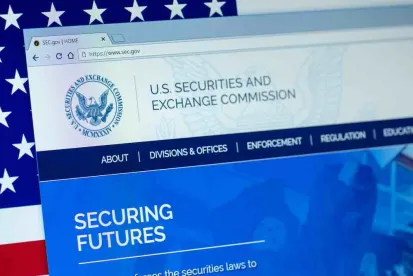Highlights
Between July 2013 and December 2020, the SEC brought a total of 75 enforcement actions and issued 19 trading suspensions against participants in digital asset markets.
Forty-three of the actions were litigated in U.S. courts, and 32 were resolved as administrative actions within the SEC.
About half of the 43 actions litigated in U.S. courts occurred in the state of New York.
In 34 of the 43 litigations brought so far, the defendants were a mix of individuals and firms. In the remaining nine litigations, the defendants were individuals only (seven) or firms only (two).
More than half of the litigations initiated in the report period (25) were resolved as of March 5, 2021 for more than $1.77 billion in total monetary penalties.
A report released by Cornerstone Research earlier this week shows the SEC “has established itself as one of the main regulators engaged in the cryptocurrency space.” The agency brought a total of 75 enforcement actions, ordered 19 trading suspensions, and issued numerous statements (both alone and joint with other regulators) and investor alerts on the subject between July 2013 and December 2020. The report’s author, Simona Mola, noted, “As of early March this year, the SEC has settled 70% of the enforcement actions for more than $1.77 billion in total monetary penalties.”
The SEC brought its first cryptocurrency-related enforcement action in July 2013 with SEC v. Shavers et al., charging the defendants with defrauding investors in a Ponzi scheme involving Bitcoin. While SEC involvement in cryptocurrency-related actions remained minimal through 2016, trading suspensions rose dramatically in 2017 followed quickly by an increase in both administrative proceedings and litigation in 2018. Primary allegations included fraud, unregistered securities offerings, failure to register offerings of swaps to non-eligible contract participants, failure to disclose compensation when promoting a security, and failure to register as a broker or an exchange.
Of the 75 enforcement actions, 32 were resolved as administrative proceedings within the SEC, and 43 were litigated at the district court level. The majority of the litigations involved allegations of both unregistered securities offerings and fraud, while the majority of actions resolved at the administrative level alleged solely unregistered securities offerings.
Much of the SEC’s historical guidance on the issue, including a 2013 investor alert prompted by the Shavers case, accompanied enforcement actions. In other cases, guidance was issued prior to taking enforcement action. For example, the SEC warned investors against making investment decisions based on celebrity endorsements in November 2017 – prior to charging two celebrities for failure to disclose compensation received to promote Initial Coin Offerings.
Leader in the Field
In addition to the sheer quantity of actions initiated by the SEC and of guidance it has promulgated, the SEC has also established itself as a leader in analyzing the legal status of cryptocurrencies. In July 2017, the SEC released the DAO Report of Investigation – in which it used the Howey test from the 1946 U.S. Supreme Court decision to determine whether a token is an investment contract. It utilized that legal analysis again in a December 2017 administrative order bringing to halt an initial coin offering issuer for failure to register its securities.
Furthermore, a June 2018 speech by William Hinman, director of the SEC’s Division of Corporate Finance, stated that neither Bitcoin nor Ether is a security and contained an analysis for separating tokens that are securities from tokens that have mere consumption utility. That analysis was formalized in April 2019 in the SEC’s framework for investment contract analysis of digital assets.
Abe Chernin, a Cornerstone Research vice president and head of the firm’s consumer finance practice noted, “There is an increasing expectation that the new administration develop a clearer regulatory approach and pursue greater interagency coordination to foster innovation in cryptocurrency markets.”




 />i
/>i

